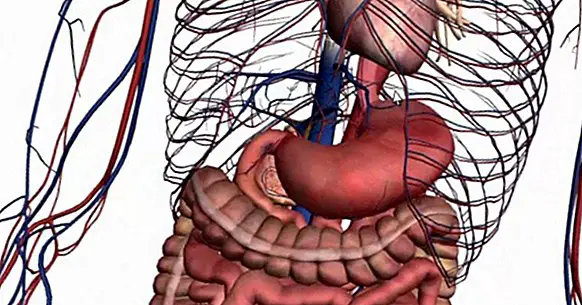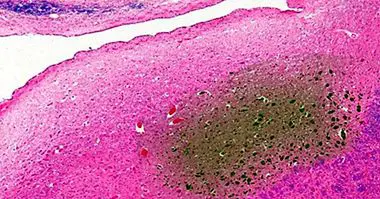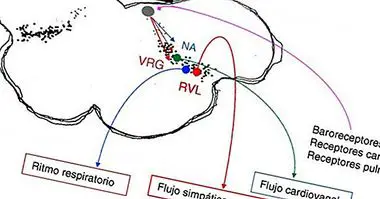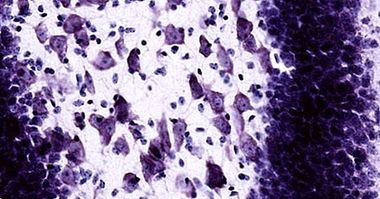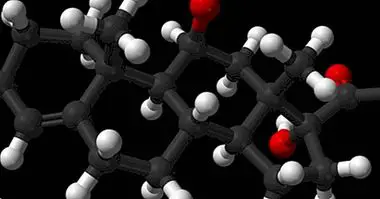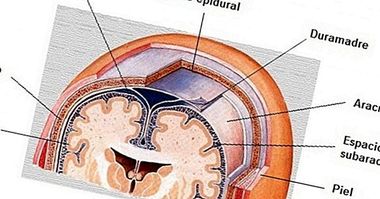This is the chemical dialogue between your brain and your stomach
We know that the brain is the main element responsible for controlling and managing the set of processes that take place in our body. But the truth is that the other systems are also very important for the maintenance of this system and have the potential to influence its activity.
An example of this is the digestive system, thanks to which we can obtain the necessary nutrients to keep us alive. Brain and stomach are related and communicate through nerve impulses and the transmission of chemical substances.
- Related article: "Parts of the human brain (and functions)"
Functional divisions of the nervous system
When we talk about the nervous system we generally divide this into the central nervous system, in which we find mainly brain and spinal cord , and peripheral or autonomic nervous system, that would correspond to the set of ganglia and nerves that innervate the different organs and cause that the information of the organs passes to the brain and vice versa.
Within the autonomic nervous system, we usually identify two basic subsystems, the sympathetic and the parasympathetic , which are responsible for managing the set of activities that the body performs outside our conscience and prepare our bodies to deal with dangerous situations (or decrease activation once past this situation).
But nevertheless, There is a third subsystem of the autonomic nervous system, little studied and often ignored despite its tremendous importance for survival. It is about the enteric nervous system, a part of our bodies related to the fascinating phenomenon of the dialogue between viscera and brain.
- Maybe you're interested: "The 31 best Psychology books you can not miss"
The enteric nervous system
The enteric nervous system is of paramount importance in the survival of the organism. It is the set of nerve fibers that innervate and control the functioning of the digestive system . Controls aspects such as the movement of the muscles of the digestive tract that allow food to reach the stomach, the secretion of acids and enzymes that dissolve food, the absorption of nutrients and the expulsion of waste.
This system is made up of millions of neurons (in an amount similar to that of the spinal cord) distributed throughout the digestive tract and although it is influenced by the sympathetic and parasympathetic systems is controlled by the enteric ganglia partially independent, acting reflexively. Not in vain, the digestive system has sometimes been called the second brain.
In this system too A large amount of hormones and neurotransmitters can be found (particles that act as messengers between neurons), as for example serotonin (of which most of what we present in our body is found and is synthesized in this system, although it is also produced by the brain), dopamine, substance P or GABA among many others.
These neurotransmitters are regulated by the enteric system itself, although there is an influence on this system by those of the central system.
- Maybe you're interested: "Autonomic nervous system: structures and functions"
Nervous communication stomach-brain
Although it has some independence, the enteric system and the central nervous system are linked and some nerves of the central nervous system are connected to different organs of the digestive tract.
The vagus nerve is the main means of nervous communication between the brain and the digestive system. This nerve has great importance in different body systems; In the case of the stomach, it has been found that a bidirectional communication is established in which, in fact, the amount of information that goes from stomach to brain is greater than that which goes from brain to stomach.
That there is a greater transmission of information from the stomach to the brain than vice versa is due to the need to control the intake . The behavior of feeding is governed by the brain, which causes the need for the brain to receive information on the good or malfunctioning of the digestive system or on whether consumption is harmful or beneficial, as well as on whether the level of consumption is being excessive (feelings of satiety and hunger).
Despite this, the vague helps control bowel activity especially when the organism is in a situation of tension or danger. In this situation the sympathetic system contributes to stop the functioning of the digestive system. When the dangerous situation happens, it is the vagus nerve that is mainly responsible for reactivating its functioning by acting at the parasympathetic level. It also participates in the emission of bile.
In addition, although the enteric system is capable of synthesizing and managing neurotransmitters, it is also affected by the functioning of the brain. Situations that generate stress or anxiety affect the enteric nervous system and its motility, as well as neurochemical imbalances such as those that occur during depression. Some of the hormones involved in this brain-gastrointestinal relationship are serotonin, noradrenaline, and dopamine. Also acetylcholine, being important for example in the functioning of the vagus nerve.
Maybe you're interested: "We raffled 5 copies of the book" Psychologically Speaking "!"
The role of the intestinal flora in communication
In addition to the role of nerve conduction and neurotransmitters, the intestinal flora also has an effect in the communication between the enteric nervous system and the central nervous system.
The microorganisms that populate our digestive tract have influence at the time of the enteric system to report the good or bad state of the system to the brain, through the modification of neurotransmitter secretion. Likewise, affects the functioning of the immune system , which in turn generates an indirect effect on behavior and health status.
Various investigations with rodents also reflect that the functioning of the digestive system and the intestinal flora and fauna may even have an effect on behavior through variations on the structure and functioning of the brain, altering the responses to certain neurotransmitters.
Effects of communication between the brain and the digestive system
The fact that the brain and digestive system are connected is of great importance and has very relevant implications. And is that there is an influence on the part of the digestive system in brain functioning, and vice versa.
The presence of intestinal disorders can be linked to aspects such as anxiety , and it has been shown that the presence of anxious or depressive disorders can cause the worsening or even the appearance of digestive problems such as peptic ulcer or irritable bowel.
It has even been detected that some of the microorganisms that line our digestive system can generate antioxidant and anti-inflammatory substances that can positively affect our brain, stimulating protective cells called astrocytes and can delay neurodegeneration. This may make it interesting to conduct further research on these effects.
But even today it is common that among the various guidelines that are recommended in some mental disorders appear mentions to dietary and food aspects such as a lower consumption of certain substances or the follow-up of diets specific (for example, increasing the level of tryptophan consumed, which in turn is related to the secretion of neurotransmitters).
Bibliographic references:
- Guyton, A.C. (2001). Treatment of Medical Physiology. (10th ed), Ed. McGraw-Hill Interamericana.
- Mirre, J.C. (2012). The importance of the second brain. Discovery Health, 147
- Rothhammer, V. et al. (2016). Type I interferons and microbial metabolites of tryptophan modulate astrocyte activity and central nervous system inflammation via the aryl hydrocarbon receptor. Nature Medicine, 22; 586-597.

